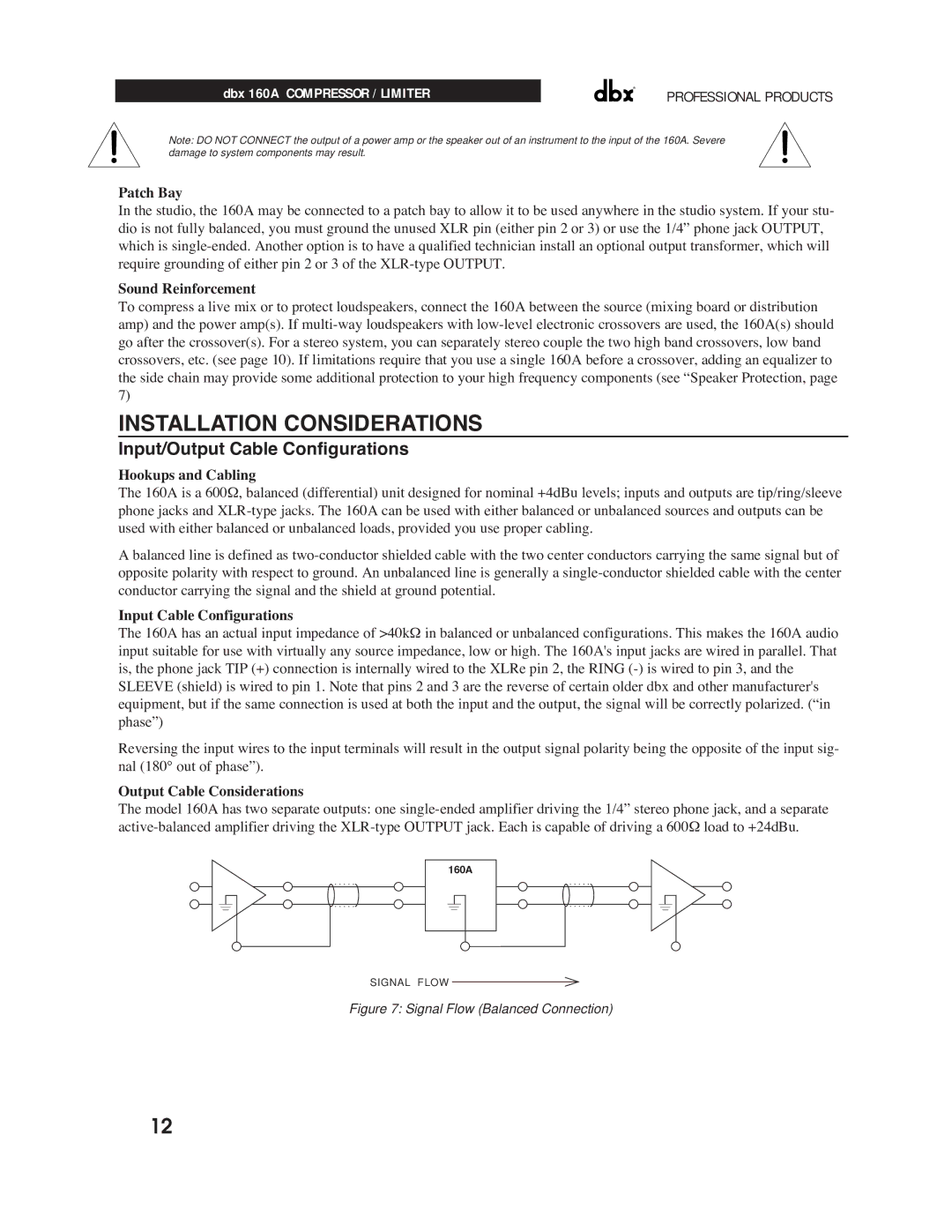
dbx 160A COMPRESSOR / LIMITER | ® |
PROFESSIONAL PRODUCTS |
Note: DO NOT CONNECT the output of a power amp or the speaker out of an instrument to the input of the 160A. Severe damage to system components may result.
Patch Bay
In the studio, the 160A may be connected to a patch bay to allow it to be used anywhere in the studio system. If your stu- dio is not fully balanced, you must ground the unused XLR pin (either pin 2 or 3) or use the 1/4Ó phone jack OUTPUT, which is
Sound Reinforcement
To compress a live mix or to protect loudspeakers, connect the 160A between the source (mixing board or distribution amp) and the power amp(s). If
INSTALLATION CONSIDERATIONS
Input/Output Cable Configurations
Hookups and Cabling
The 160A is a 600½, balanced (differential) unit designed for nominal +4dBu levels; inputs and outputs are tip/ring/sleeve phone jacks and
A balanced line is defined as
Input Cable Configurations
The 160A has an actual input impedance of >40k½ in balanced or unbalanced configurations. This makes the 160A audio input suitable for use with virtually any source impedance, low or high. The 160A's input jacks are wired in parallel. That is, the phone jack TIP (+) connection is internally wired to the XLRe pin 2, the RING
Reversing the input wires to the input terminals will result in the output signal polarity being the opposite of the input sig- nal (180¡ out of phaseÓ).
Output Cable Considerations
The model 160A has two separate outputs: one
160A
SIGNAL FLOW ![]()
Figure 7: Signal Flow (Balanced Connection)
12
